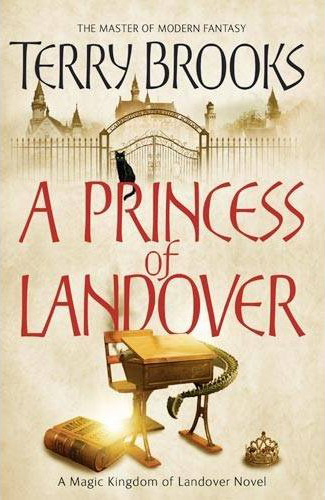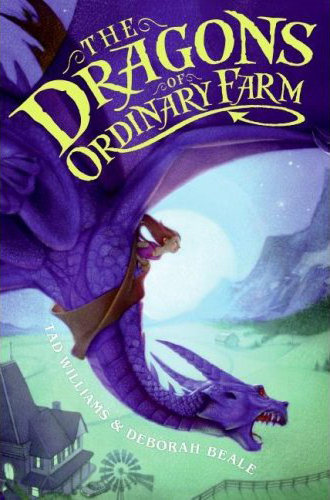Best Novel
(639 Ballots / Bulletins)
Anathem by Neal Stephenson (Morrow; Atlantic UK)
The Graveyard Book by Neil Gaiman (HarperCollins; Bloomsbury)
Little Brother by Cory Doctorow (Tor) — Free download
Saturn’s Children by Charles Stross (Ace; Orbit)
Zoe’s Tale by John Scalzi (Tor)
Best Novella
(337 Ballots / Bulletins)
“The Erdmann Nexus” by Nancy Kress (Asimov’s Oct/Nov 2008)
“The Political Prisoner” by Charles Coleman Finlay (F&SF Aug 2008) – Read Online
“The Tear” by Ian McDonald (Galactic Empires)
“True Names” by Benjamin Rosenbaum & Cory Doctorow (Fast Forward 2) — Free download
“Truth” by Robert Reed (Asimov’s Oct/Nov 2008)
Best Novelette
(373 Ballots / Bulletins)
“Alastair Baffle’s Emporium of Wonders” by Mike Resnick (Asimov’s Jan 2008) — Read Online
“The Gambler” by Paolo Bacigalupi (Fast Forward 2) — Read Online
“Pride and Prometheus” by John Kessel (F&SF Jan 2008)
“The Ray-Gun: A Love Story” by James Alan Gardner (Asimov’s Feb 2008) — Read Online
“Shoggoths in Bloom” by Elizabeth Bear (Asimov’s Mar 2008) — Read Online
Best Short Story
(448 Ballots / Bulletins)
“26 Monkeys, Also the Abyss” by Kij Johnson (Asimov’s Jul 2008) — Read Online
“Article of Faith” by Mike Resnick (Baen’s Universe Oct 2008)
“Evil Robot Monkey” by Mary Robinette Kowal (The Solaris Book of New Science Fiction, Volume Two)
“Exhalation” by Ted Chiang (Eclipse Two)
“From Babel’s Fall’n Glory We Fled” by Michael Swanwick (Asimov’s Feb 2008)
Best Related Book
(263 Ballots / Bulletins)
Rhetorics of Fantasy by Farah Mendlesohn (Wesleyan University Press)
Spectrum 15: The Best in Contemporary Fantastic Art by Cathy & Arnie Fenner, eds. (Underwood Books)
The Vorkosigan Companion: The Universe of Lois McMaster Bujold by Lillian Stewart Carl & John Helfers, eds. (Baen)
What It Is We Do When We Read Science Fiction by Paul Kincaid (Beccon Publications)
Your Hate Mail Will be Graded: A Decade of Whatever, 1998-2008 by John Scalzi (Subterranean Press)
Best Graphic Story
(212 Ballots / Bulletins)
The Dresden Files: Welcome to the Jungle Written by Jim Butcher, art by Ardian Syaf (Del Rey/Dabel Brothers Publishing)
Girl Genius, Volume 8: Agatha Heterodyne and the Chapel of Bones Written by Kaja & Phil Foglio, art by Phil Foglio, colors by Cheyenne Wright (Airship Entertainment)
Fables: War and Pieces Written by Bill Willingham, pencilled by Mark Buckingham, art by Steve Leialoha and Andrew Pepoy, color by Lee Loughridge, letters by Todd Klein (DC/Vertigo Comics)
Schlock Mercenary: The Body Politic Story and art by Howard Tayler (The Tayler Corporation)
Serenity: Better Days Written by Joss Whedon & Brett Matthews, art by Will Conrad, color by Michelle Madsen, cover by Jo Chen (Dark Horse Comics)
Y: The Last Man, Volume 10: Whys and Wherefores Written/created by Brian K. Vaughan, pencilled/created by Pia Guerra, inked by Jose Marzan, Jr. (DC/Vertigo Comics)
Best Dramatic Presentation, Long Form
(436 Ballots / Bulletins)
The Dark Knight Christopher Nolan & David S. Goyer, story; Jonathan Nolan and Christopher Nolan, screenplay; based on characters created by Bob Kane; Christopher Nolan, director (Warner Brothers)
Hellboy II: The Golden Army Guillermo del Toro & Mike Mignola, story; Guillermo del Toro, screenplay; based on the comic by Mike Mignola; Guillermo del Toro, director (Dark Horse, Universal)
Iron Man Mark Fergus & Hawk Ostby and Art Marcum & Matt Holloway, screenplay; based on characters created by Stan Lee & Don Heck & Larry Lieber & Jack Kirby; Jon Favreau, director (Paramount, Marvel Studios)
METAtropolis by John Scalzi, ed. Written by: Elizabeth Bear, Jay Lake, Tobias Buckell and Karl Schroeder (Audible Inc)
WALL-E Andrew Stanton & Pete Docter, story; Andrew Stanton & Jim Reardon, screenplay; Andrew Stanton, director (Pixar/Walt Disney)
Best Dramatic Presentation, Short Form
(336 Ballots / Bulletins)
“The Constant” (Lost) Carlton Cuse & Damon Lindelof, writers; Jack Bender, director (Bad Robot, ABC studios)
Doctor Horrible’s Sing-Along Blog Joss Whedon, & Zack Whedon, & Jed Whedon & Maurissa Tancharoen , writers; Joss Whedon, director (Mutant Enemy)
“Revelations” (Battlestar Galactica) Bradley Thompson & David Weddle, writers; Michael Rymer, director (NBC Universal)
“Silence in the Library/Forest of the Dead” (Doctor Who) Steven Moffat, writer; Euros Lyn, director (BBC Wales)
“Turn Left” (Doctor Who) Russell T. Davies, writer; Graeme Harper, director (BBC Wales)
Best Editor, Short Form
(377 Ballots / Bulletins)
Ellen Datlow
Stanley Schmidt
Jonathan Strahan
Gordon Van Gelder
Sheila Williams
Best Editor, Long Form
(273 Ballots / Bulletins)
Lou Anders
Ginjer Buchanan
David G. Hartwell
Beth Meacham
Patrick Nielsen Hayden
Best Professional Artist
(334 Ballots / Bulletins)
Daniel Dos Santos
Bob Eggleton
Donato Giancola
John Picacio
Shaun Tan
Best Semiprozine
(283 Ballots / Bulletins)
Clarkesworld Magazine edited by Neil Clarke, Nick Mamatas & Sean Wallace
Interzone edited by Andy Cox
Locus edited by Charles N. Brown, Kirsten Gong-Wong, & Liza Groen Trombi
The New York Review of Science Fiction edited by Kathryn Cramer, Kris Dikeman, David G. Hartwell, & Kevin J. Maroney
Weird Tales edited by Ann VanderMeer & Stephen H. Segal
Best Fanzine
(257 Ballots / Bulletins)
Argentus edited by Steven H Silver
Banana Wings edited by Claire Brialey and Mark Plummer
Challenger edited by Guy H. Lillian III
The Drink Tank edited by Chris Garcia
Electric Velocipede edited by John Klima
File 770 edited by Mike Glyer
Best Fan Writer
(291 Ballots / Bulletins)
Chris Garcia
John Hertz
Dave Langford
Cheryl Morgan
Steven H Silver
Best Fan Artist
(187 Ballots / Bulletins)
Alan F. Beck
Brad W. Foster
Sue Mason
Taral Wayne
Frank Wu
The John W. Campbell Award for Best New Writer
(288 Ballots / Bulletins)
Aliette de Bodard
David Anthony Durham
Felix Gilman
Tony Pi
Gord Sellar


 Tobias Buckell, author of Crystal Rain and Halo: The Cole Protocol, has
Tobias Buckell, author of Crystal Rain and Halo: The Cole Protocol, has 
